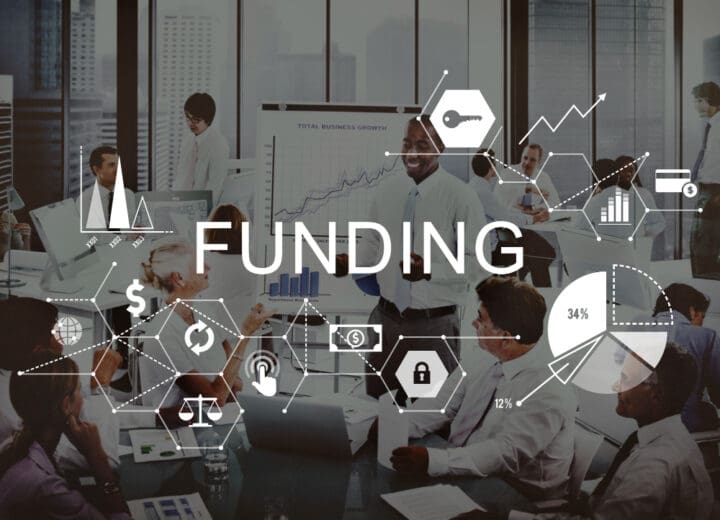Understanding the latest trends is crucial for startup founders aiming to navigate the evolving business landscape. In 2025, various global factors are influencing the startup ecosystem, necessitating agility and strategic foresight. Founders must be aware of these changes to position their ventures competitively. By staying informed, leaders can anticipate challenges and leverage opportunities.
The startup landscape in 2025 is shaped by technological advancements, evolving consumer preferences, and increased emphasis on sustainability. Founders are advised to adapt to these shifts and incorporate innovative solutions into their business models. This foresight can lead to sustainable growth and competitive advantage. We will explore key trends that are redefining the industry.

Generative AI and Autonomous Technology
Generative AI is revolutionizing industries from marketing to healthcare. Startups are leveraging AI to enhance personalization, efficiency, and predictive capabilities. This technology is crucial for startups aiming to lead innovation, offering smarter, faster, and more effective operations across various sectors.
In creative tasks such as content creation and product design, AI is playing an increasingly significant role. Startups employ AI for rapid prototyping and personalized marketing, enabling them to deliver customized experiences at scale. The ability to swiftly adapt to consumer needs sets these startups apart.
Logistics startups are turning to AI-driven fleet management and delivery drones, reducing costs and speeding up deliveries. Real-time optimizations and predictive inventory management reduce waste and enhance supply chain resilience. This integration of AI in logistics represents a major industry shift.
Manufacturing processes are being transformed by autonomous robotics and AI. Startups are using these technologies for maintenance prediction and quality control. This allows small manufacturers to compete with larger firms, offering high-quality products at reduced costs. The precision and efficiency of AI in manufacturing are game-changers.
Decentralized Finance (DeFi) and Fintech
Decentralized finance is disrupting traditional financial models, especially in emerging markets. By removing traditional intermediaries, DeFi enables individuals to have financial independence and privacy, fundamentally changing money management.
Blockchain-based lending is on the rise, facilitating secure transactions through smart contracts. Startups are developing platforms that allow loans without traditional credit checks, using digital assets as collateral. This innovation is reshaping the credit landscape, providing new liquidity options.
Embedded finance and BNPL solutions are evolving, integrating payments directly into retail and service platforms. This trend is expanding into diverse sectors such as healthcare and education, driven by fintech startups.
Logistics and Manufacturing Innovations
Global disruptions have pushed startups to innovate in logistics and manufacturing. They are focusing on creating resilient supply chains and efficient manufacturing processes to cope with challenges.
Smart manufacturing startups are employing AI and IoT to enhance production. Real-time data monitoring and predictive maintenance result in minimal downtime. Smaller startups can thus reduce waste while maintaining high productivity, allowing them to compete against established companies.
AI-driven inventory management addresses demand prediction challenges. Startups use these systems to optimize stock levels and prevent overproduction. Real-time data helps minimize stockouts and overstocking, improving overall supply chain efficiency.
Blockchain is providing transparency in supply chains, meeting the demand for ethical and sustainable sourcing. This is vital for industries like food and fashion, where traceability builds trust and ensures compliance with regulations.
Hyper-personalized Offerings
The trend towards hyper-personalization continues to grow in 2025, with consumers expecting products tailored specifically to their preferences.
Ecommerce platforms are leveraging AI to anticipate consumer desires, offering personalized recommendations. This use of data helps to create bespoke shopping experiences that align closely with individual consumer behavior.
Data-driven personalization is becoming more sophisticated, with startups using AI to tailor marketing and product suggestions to the individual. This approach enhances consumer engagement and loyalty by making interactions more relevant and personalized.
Climate Technology and Sustainable Consumer Goods
Environmental concerns are driving growth in climate technology and sustainable goods. Startups in this space are poised for major growth, offering solutions for energy, waste management, and sustainable products.
Green technology startups, supported by government incentives, are advancing efficient renewable energy solutions. Waste management startups are innovating with improved recycling processes, contributing to sustainability goals.
The circular economy is being adopted by startups creating genuine eco-friendly alternatives. They move beyond greenwashing by offering sustainable packaging and lab-grown foods. These initiatives meet consumer demands for ethical consumption.
Vertical Software as a Service (SaaS) and Industry-Specific Solutions
B2B SaaS startups are shifting towards vertical solutions catering to specific industries such as healthcare and agriculture. These tailored services address niche needs, offering seamless integration with industry-specific technology.
Industry-specific customization provides solutions tailored to unique sector workflow needs. For instance, in healthcare, tailored platforms integrate with EMRs and meet privacy regulations, enhancing patient care and operational efficiency.
Targeted features enable startups to focus on specialized challenges, allowing for rapid deployment and enhanced customer service. By expanding within verticals, startups can develop complementary features that grow their market reach.
New Applications of Web3
Startups embracing Web3 are exploring new uses for blockchain beyond cryptocurrencies, from digital identities to decentralized markets.
Digital identity platforms enable users to control their identities without centralized authorities, enhancing privacy and data sovereignty. These decentralized platforms offer secure verification and access to services without third-party oversight.
Decentralized social networks counteract traditional media concerns by giving users content ownership. Blockchain ensures transparency and community governance, fostering user trust. Initiatives like these are transforming social media landscapes.
NFTs have evolved beyond collectibles; they now offer membership programs providing exclusive access to content. This innovation opens revenue avenues for companies, with startups facilitating seamless NFT-based memberships.
Workforce Trends: Hybrid Work and Talent Marketplaces
Startups are innovating workforce solutions for hybrid work, with platforms supporting flexible scheduling and remote collaboration.
Talent marketplaces are expanding, catering to freelance and part-time work demands. These platforms connect skilled workers with companies, offering strategic, skill-based employment opportunities.
Wellness and productivity tools are being integrated into corporate systems to address hybrid work challenges. These platforms engage employees by focusing on mental health and productivity, ensuring a balanced work-life integration.
On-demand Startups
On-demand startups are responding to consumer desires for immediate service delivery, optimizing logistics for speed and convenience.
Dark stores are revolutionizing order fulfillment, with AI-driven systems enabling rapid delivery. These innovations meet the demand for quick and efficient service in the retail sector.
Instant pay startups are changing payment systems, offering real-time access to earnings. This caters to gig and hourly workers with immediate financial needs, enhancing financial flexibility.
On-demand healthcare startups are providing immediate patient access to medical services, addressing long wait times. Telemedicine solutions further streamline healthcare provisions, offering quicker consultations and treatment accessibility.
Conscious Consumerism and Ethical Startups
Ethical practices are becoming a priority as conscious consumerism grows, pushing startups to adopt sustainable and transparent operations.
Startups focusing on ethical labor and fair trade practices are gaining traction, responding to consumer demand for socially responsible brands.
Transparent sourcing is crucial, with startups using digital tools to ensure ethical supply chains. This builds consumer trust and aligns with shifting market expectations.
Socially responsible business models, such as those obtaining B Corp certifications, attract consumers willing to support ethical operations. These startups are proving that profitability and positive impact can coexist.
Staying informed about industry trends is essential for startup success in 2025. By understanding and integrating these developments, founders can strategically navigate challenges and harness new opportunities.





